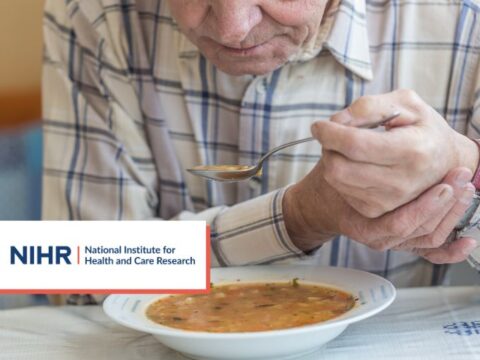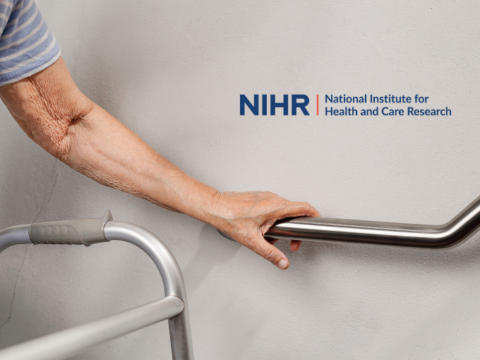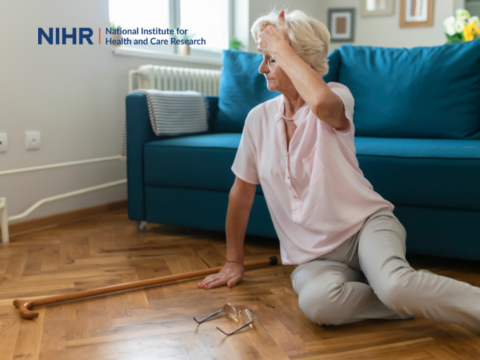 Being cared for at home is a good alternative to hospital for many older people, researchers have found. The service, called hospital at home, led to no more deaths after 6 months or 1 year than among people admitted to hospital. People receiving this were less likely to be admitted to a care home (a sign they are not coping at home), and it was cheaper than hospital care. In addition, people and their carers preferred this service over hospital care.
Being cared for at home is a good alternative to hospital for many older people, researchers have found. The service, called hospital at home, led to no more deaths after 6 months or 1 year than among people admitted to hospital. People receiving this were less likely to be admitted to a care home (a sign they are not coping at home), and it was cheaper than hospital care. In addition, people and their carers preferred this service over hospital care.
Some areas in the UK already provide hospital at home for older people. The service is led by a geriatrician (a doctor who treats older people), working with a team of different NHS specialists (multi-disciplinary team). Without such a service, some of these people would have been admitted to hospital.
Hospital at home is not suitable for the most unwell older people. In addition, people using the service cannot have poor housing conditions. They need to have a home that, for example, can have handrails fitted if required, has heating and hot water.
Further information on hospital at home can be found on the NHS website.
Article shared from the NIHR Evidence website, first published on 5th September 2022
What’s the issue?
Growing numbers of older people have complex needs. They may have more than one long-term condition or be living with frailty. When they develop a sudden and intense illness, they are more likely to be admitted to hospital. Hospital care is expensive, may reduce their opportunities to be mobile, and can put them at risk of infection.
However, until recently it wasn’t known if hospital at home is a good alternative. This study explored whether hospital at home, led by a geriatrician, would allow older people to remain in their homes for longer, compared with hospital care. It explored the costs of the service (compared to hospital care) and whether it helped people to recover from illness. The team interviewed older people and their caregivers to assess their experiences of the two services.
What’s new?
The study included 1,000 people in 9 locations across the UK. It included people aged 65 years and older who were being considered for a hospital admission. One group of participants was admitted to hospital, the other received hospital at home (homecare). Homecare included a complete geriatric assessment along with care from different NHS specialists. All participants had access to hospital-based services when needed (including admissions), and primary care.
6 months later, people in both groups were similarly likely to be living at home (79% homecare; 75% hospital). This was also true at 12 months (66% homecare; 67% hospital).
The study also found that:
- a similar proportion of each group had died at 6 and 12 months
- slightly fewer people in the homecare group were admitted for long-term residential care at 6 and 12 months
- both groups had similar problems with memory and concentration (cognitive impairment) and carrying out daily activities at 6 months
- people in the homecare group had less risk of sudden confusion (delirium) at 1 month follow-up than the hospital group
- people in the homecare group were more likely to be transferred to hospital after 1 month, though by 6 months transfers to hospital were similarly likely in both groups.
The researchers took into account NHS, personal social care, and informal care costs. They concluded that homecare (hospital at home) could be a cost-effective alternative to hospital for older people. It was not suitable for all older people, such as those who are most seriously unwell.
People who used hospital at home, and their caregivers, were generally satisfied with the service. Some found that home was better equipped to meet their needs than hospital. One said: ‘I tried to go to the toilet [on the ward], to walk there. Well, I was told off for being on my own. So, after that I made sure that I had somebody with me. [At home] I have a commode downstairs and a commode in the bedroom.’ [Page 74]
Therapists who assessed people at home were able to see potential obstacles and give suitable advice or equipment. However, some homes were not suitable for hospital at home. For instance, some sheltered accommodation (for elderly or disabled people who live independently) did not have handrails to help people move around, or did not allow caregivers to stay. One person said: ‘I can get as far as that door, but then there’s nothing between that door and the toilet door for me to… grab hold of… I can’t ask any of the family to stay overnight. I’m not allowed it [here in] sheltered housing… And there’s no warden overnight… So I kept falling and phoning the family up. I mean, sometimes it’s 2 and 3 in the morning.’ [Page 73]
Why is this important?
Hospital at home can be a good alternative to hospital for many older people who would otherwise be admitted to hospital. This study found that hospital at home did not lead to an increase in admissions to a care home at 6 or 12 months, and did not increase the risk of death. Service users were generally more satisfied with hospital at home than with hospital care.
Delivering hospital at home can also be more satisfying for staff. They work across traditional boundaries, sharing knowledge, skills, and information about each person’s needs. This can help them offer more holistic care, and helps make home visits efficient. By contrast, increased specialisation within hospitals tends to mean tasks are divided up between staff members, according to their role. This can contribute to people’s care being disrupted.
What’s next?
Since the COVID-19 pandemic started, the NHS has aimed to treat more people outside of hospital. These results will guide expanded use of hospital at home, as part of NHS England’s Virtual Ward programme. People can be supported by medical devices to monitor oxygen levels, for example, or heart rate.
This study shows the benefits of care at home and supports the drive towards virtual wards. The researchers stress that integration with specialist care is essential for hospital and home services to be successful and to expand.
Social networks supported people’s recovery in both settings. They were particularly important in the hospital at home group. Families and caregivers often monitored people’s health and helped to plan care. Further research should look at the impact of carers and social networks on recovery.
Slightly fewer people experienced delirium in hospital at home, compared with hospital care. More research is needed to explore how delirium influences where people are best cared for. The impact on caregivers of looking after someone with delirium at home needs to be considered in future studies.
You may be interested to read
This Alert was based on: Shepperd S, and others. Hospital at Home admission avoidance with comprehensive geriatric assessment to maintain living at home for people aged 65 years and over: a RCT. Health and Social Care Delivery Research 2022;10:2
Main results of the trial: Shepperd S, and others. Is Comprehensive Geriatric Assessment Admission Avoidance Hospital at Home an Alternative to Hospital Admission for Older Persons? Annals of Internal Medicine 2021;174:7
The cost-effectiveness of this approach: Singh S, and others. Is comprehensive geriatric assessment hospital at home a cost-effective alternative to hospital admission for older people? Age and Ageing 2022;51:1
A study exploring how older people and their caregivers deal with an acute illness: Mäkelä S, and others. The work of older people and their informal caregivers in managing an acute health event in a hospital at home or hospital inpatient setting. Age and Ageing 2020;49:5
Funding: This project was funded by the NIHR Health and Social Care Delivery Research programme.
Conflicts of Interest: The study authors declare no conflicts of interest.
Disclaimer: NIHR Alerts are not a substitute for professional medical advice. They provide information about research which is funded or supported by the NIHR. Please note that views expressed in NIHR Alerts are those of the author(s) and reviewer(s) at the time of publication. They do not necessarily reflect the views of the NHS, the NIHR or the Department of Health and Social Care.

 Print This Post
Print This Post




